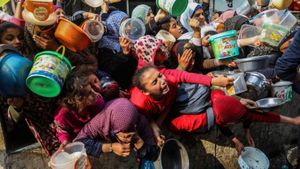The 2025 parliamentary elections set to take place in Iraq are already overshadowed by rising political instability and security concerns, significantly impacting the electoral environment. Iraqi citizens, local political parties, and government officials are preparing for what could be another tumultuous election, especially after recent political crises and protests have set the stage for change.
Political observers note the involvement of significant parties like the Sairoon Alliance and the Fatah Alliance, both of which have seen fluctuated fortunes since Iraq’s last elections. According to Saad al-Hadithi, a political analyst, "The current climate is unstable, and many citizens are disillusioned with the political process," which reflects deep-seated frustrations among the voters.
Scheduled for 2025, these elections are not just about casting votes; they are expected to be a referendum on Iraq's political future. Previous elections were marred by public dissatisfaction with government inefficiency and rampant corruption, leading to widespread protests. Many Iraqis are yearning for new leadership and effective governance.
The electoral process will take place across Iraq, prominently featuring urban centers such as Baghdad, Basra, and Erbil. Voter registration drives are already underway, with political leaders ramping up their campaigns to garner support. Yet, the looming question remains: will they be able to address the pressing issues? The civil rights activist Mariam al-Azzawi emphasizes, "Without addressing corruption and public grievances, upcoming elections may not bring the change Iraq needs." This sentiment resonates broadly among the electorate.
Despite efforts by parties to engage the public, security remains a significant concern as threats from groups like ISIS continue to pose risks to peace and stability. The reality is, many voters may be hesitant to participate out of fear for their safety or the potential for electoral violence. Security forces are preparing to safeguard the electoral process, but the specter of unrest after the ballots are cast is real.
Looking beyond the immediate electoral framework, the political atmosphere invites scrutiny of whether any real change can be achieved through ballots rather than bullets. Voter turnout will be closely watched, and candidates who fail to resonate with the electorate’s concerns might find themselves out of favor.
While the future of Iraq remains uncertain, one thing is clear: the 2025 elections represent more than just political positions but reflect how far Iraqis have come and the direction they wish to take. The stakes have never been higher, and the opportunity for fundamental change lies within the power of the vote. With citizens hoping for genuine reforms, it is imperative now more than ever for Iraq's leadership to listen to the voices of its people.
This election will not be merely another date on the calendar but perhaps one of the many pivotal moments for Iraq. Citizens are eager for results, patiently waiting to see if their votes will lead to the substantive transformations necessary for their nation’s progress.



